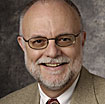Commentary on Ezekiel 2:1-5
Passages like this one can lead in two very different directions.
On the one hand, the certainty of a call from God can offer strength and conviction in the face of adversaries. It can buck up a failing will to speak the truth in a community that finds truth-telling threatening. This reading of a prophetic call has been the stuff of preaching for centuries, and more than a few preachers have heard this call as a model for their own ministries.
On the other hand, a passage like this one can offer too much certainty for an arrogant human convinced that she has a phone line to the Almighty and has been sent by God to set the world straight.
I had a student some years ago who quite literally poisoned one of my classes. Citing passages like Ezekiel 2:1-5, he believed that his call was so completely approved by God that any classmates with ideas other than his were subjected to withering abuse. And all his abuse was couched in the conviction that he was telling the truth received from on high.
Certainty of call can be a wonderful thing, but certainty of call can also be a terrible thing.
Ezekiel was called to his prophetic ministry during the greatest crisis in the nation’s history. In 597 BCE, the Babylonians had come to the city of Jerusalem, bent on conquest. They had defeated the meager armies of the nation and had made Israel a vassal, placing their own Babylonian puppet, Zedekiah, on the throne.
However, during the next ten years, Zedekiah had been convinced that he should resist his Babylonian masters, proclaim independence from Babylon, and align with Egypt. Such recklessness brought down the wrath of Nebuchadnezzar. He returned to Jerusalem in 587 BCE, destroyed the city, and this time, removed the king and court to Babylon. Israel ceased to exist as a nation and remained in limbo for several centuries. This story is told in a memorable poetic allegory in Ezekiel 17.
Into this maelstrom of defeat, plunder, and death, Ezekiel was called to speak. Little wonder that his call is described at such length and with such drama in chapter 1, the vision of the throne chariot.
Confronted by a mind-blowing apparition of winged creatures and wheels within wheels, all wrapped in towering clouds, Ezekiel falls on his face. Visions can do that to a person!
But then he hears the voice of someone speaking (Ezekiel 1:28). He first hears, “Mortal (literally ‘son of man,’ though the locution suggests a part of a group, so ‘mortal’ is a correct reading), stand on your feet, and I will speak to you!” (Ezekiel 2:1). But Ezekiel, on his own, cannot stand. So, the text continues: “a spirit (or wind) entered (the literal Hebrew here is ‘a wind in the manner of a word’) came into me, and set me on my feet” (Ezekiel 2:2).
Something important is said by this language. All of the prophet’s actions are directed by God; Ezekiel is not able to stand or to speak unless directed by the Spirit of God to do so. This fact implies that anyone who claims to speak for God should listen very intently to what God has for him/her to say. He/she should continually reflect on the nature of the divine call to speak.
God’s call to Ezekiel is a harsh one. “Mortal, I am sending you to the people of Israel, a nation of rebels who have rebelled against me. They and their ancestors have transgressed against me to this very day” (Ezekiel 2:3).
Here God recalls that long-ago time when spies were sent into the Promised Land. The report came back that the inhabitants were like giants and could never be defeated. But Joshua and Caleb gave a different assessment and accused their compatriots of “rebellion against the Lord” (Numbers 14:9). These rebellions are typical of Israel even now, says God.
In the face of “impudence” and “stubbornness,” Ezekiel is to say, “Thus says the Lord” (Ezekiel 2:4). He is never to produce his own ideas or words, for such individual human arguments can never carry the day against a people long-entrenched in rebellion.
“Whether they hear or refuse to hear, they will know that there has been a prophet among them” (Ezekiel 2:5). Verses 6-7 warn Ezekiel not to be afraid of them, no matter their words of rejection, no matter their looks of disapproval and disdain.
But the question remains always: how are we to know that a true prophet has been among us? As the modern world shows, many people who claim to speak for God say all manner of things that many others think could never have come from God at all.
It is crucial to return to the beginning of the passage. Ezekiel has nothing to say. He is incapable of saying anything apart from the indwelling of God’s Spirit. This calls for humility.
When I stand to speak for God, I must always know that it is I who am speaking. I hope that God’s Spirit infuses my words, but I also know that those words are pouring out of my mouth, infused with my reflection and my research.
And this is why chapter 2 of Ezekiel is written in the way it is. To speak for God is both wondrous and dangerous. Before we take such a task on, we had better open ourselves up, as wide as we can, so that God’s Spirit might pour in.

July 5, 2009